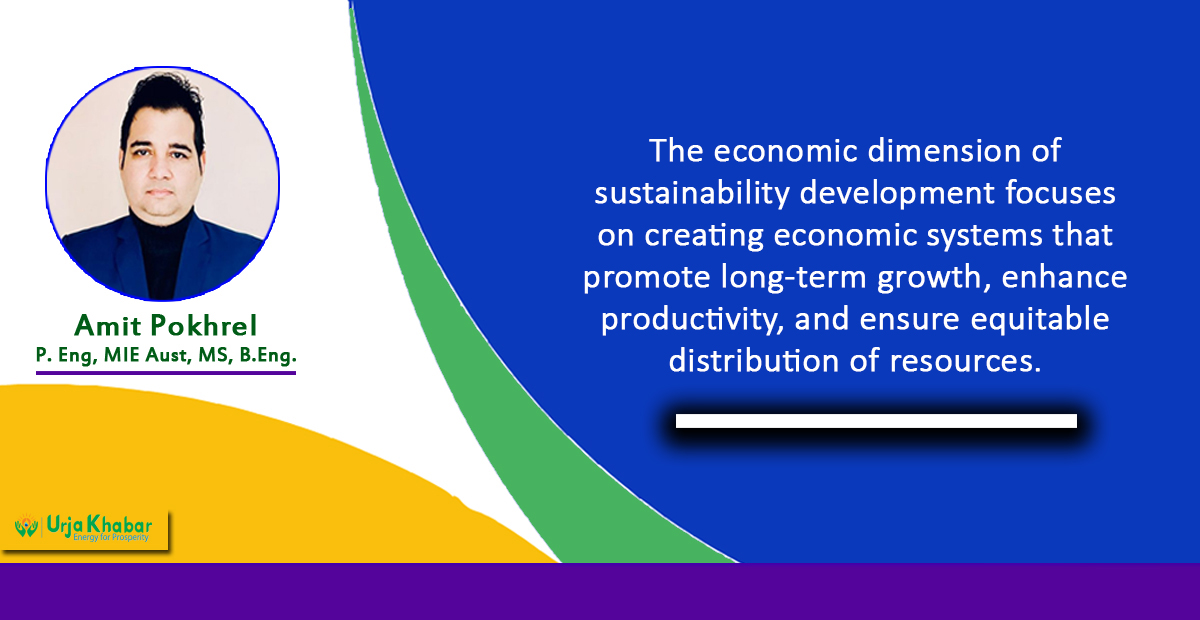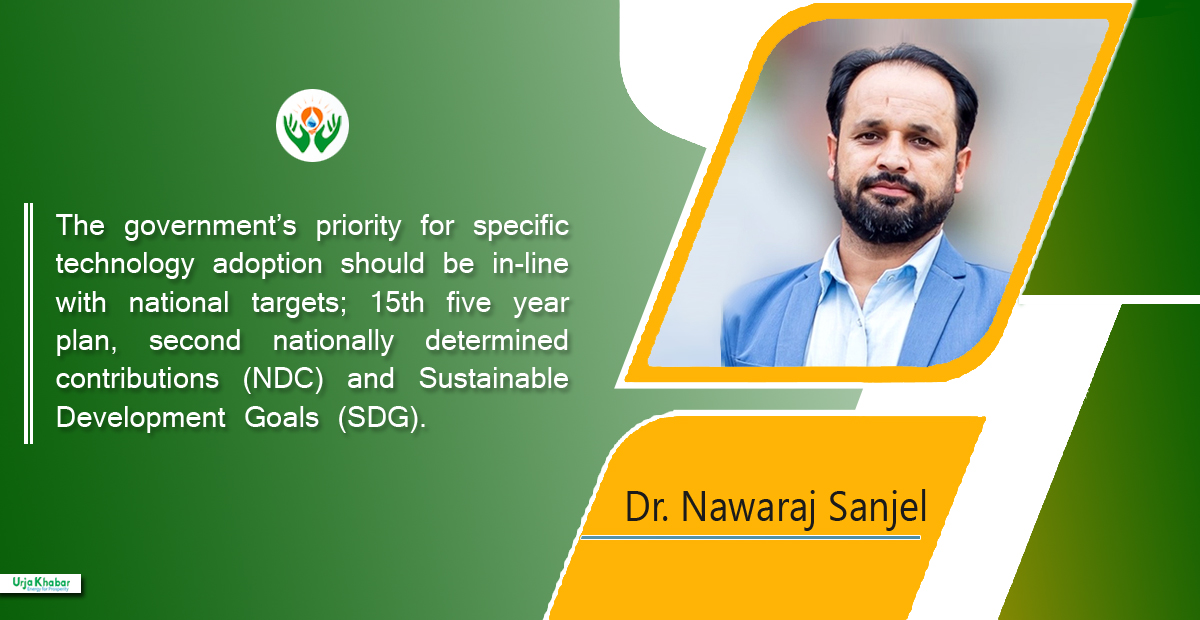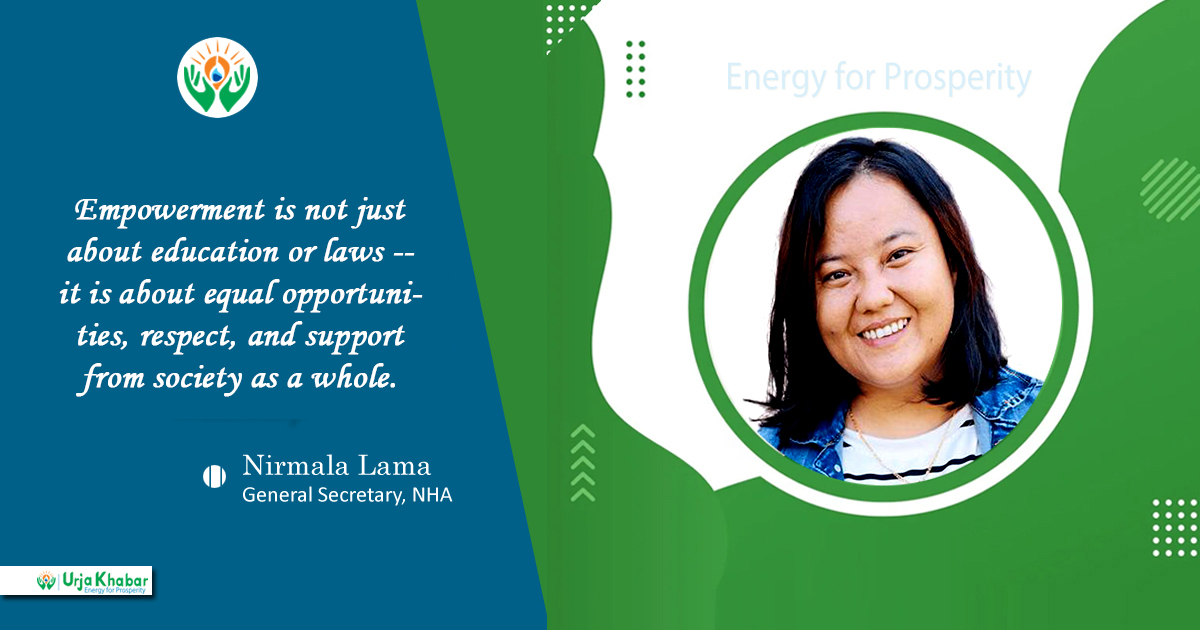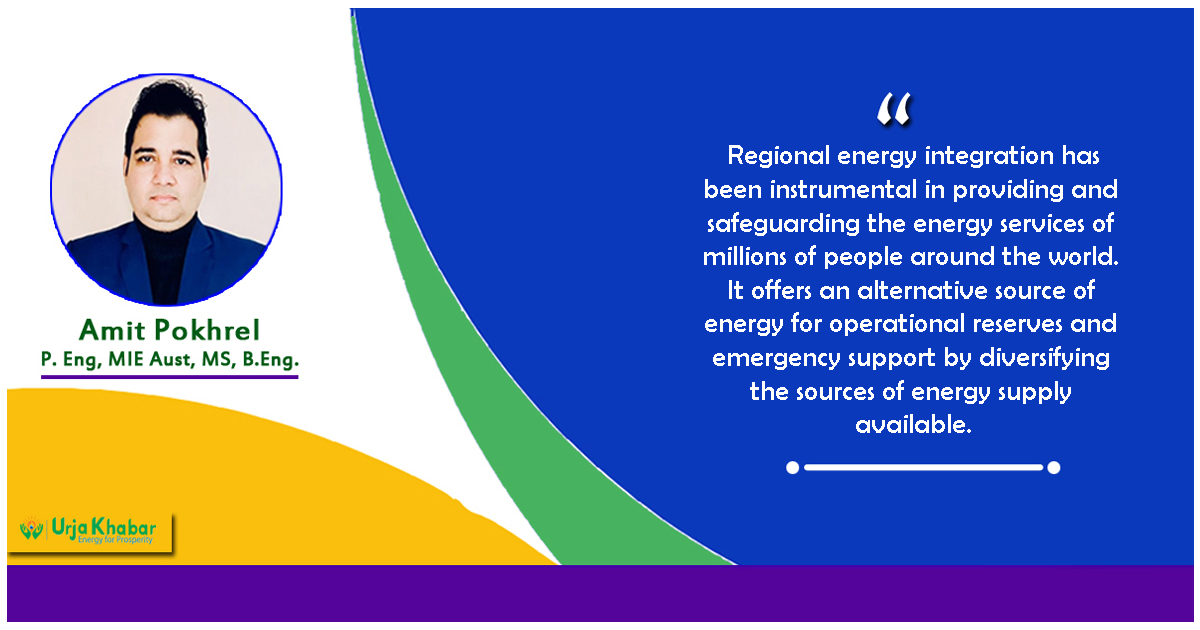Energy Update
Sustainability Development: Balancing Economic, Social and Environmental Dimensions

Sustainability development is a necessity in today's world, as we face pressing environmental, social, and economic challenges. This concept recognizes the need to balance economic growth, social well-being, and environmental protection to ensure a healthier and more prosperous future for generations to come.
Sustainability development involves meeting the needs of the present without compromising the ability of future generations to meet their own needs. It is a holistic approach that considers the interconnections between environmental, social, and economic aspects.

The economic dimension of sustainability development focuses on creating economic systems that promote long-term growth, enhance productivity, and ensure equitable distribution of resources. It emphasizes the importance of sustainable business practices, responsible investment, and fair trade. Promoting sustainable economic development requires minimizing environmental impact, encouraging innovation, and prioritizing renewable resources. This includes transitioning to cleaner energy sources, integrating circular economy principles, and reducing waste generation.
The social dimension of sustainability development places importance on equity, social justice, and well-being. It encompasses aspects such as education, healthcare, access to basic services, and community engagement. A socially sustainable society ensures that all individuals have equal opportunities, live in safe and inclusive communities, and have their basic needs met. This dimension encompasses efforts to reduce poverty, promote social cohesion, and empower marginalized groups.

Environmental Dimension of Sustainability Development
The environmental dimension of sustainability development recognizes the finite nature of natural resources and the need to protect the environment for future generations. It focuses on conservation, biodiversity, reducing pollution, and mitigating climate change. Efforts to address the environmental dimension include promoting sustainable consumption and production, adopting eco-friendly practices, and implementing strategies to safeguard ecosystems. This involves reducing emissions, preserving biodiversity, protecting water resources, and minimizing waste generation.
Balancing the economic, social, and environmental dimensions of sustainability development is vital for long-term success. This means finding synergies and mitigating trade-offs between these dimensions to ensure a holistic approach. Governments, businesses, civil society, and individuals all play a role in achieving this balance. Collaboration is essential to develop strategies and policies that integrate these dimensions and promote sustainable development.
Examples of Sustainable Development Initiatives
1. Sustainable Energy Transition: Promoting the shift from fossil fuel-based energy systems to renewable energy sources can contribute to both economic growth and environmental protection.
2. Social Entrepreneurship: Supporting and investing in social enterprises that prioritize social and environmental impact alongside profitability can help promote a balance between economic and social dimensions.
3. Circular Economy: Adopting circular economy principles, such as recycling, reusing, and reducing waste, contributes to both economic efficiency and environmental sustainability.
4. Sustainable Agriculture: Encouraging sustainable agricultural practices, such as organic farming and agroforestry, promotes ecological preservation while ensuring food security and economic viability.
Sustainability development is a multifaceted concept that involves integrating economic, social, and environmental dimensions for a more sustainable future. Balancing these dimensions requires collaboration, innovation, and a commitment to change. By adopting sustainable practices, investing in renewable resources, promoting social justice, and protecting the environment, we can achieve a world that provides for the needs of current and future generations, without compromising the well-being of people or the planet.
The Author of this article works as a Senior Contract & Commercial Expert in the Energy Business Verticals of Golyan Group, Kathmandu, Nepal
Conversation
- Info. Dept. Reg. No. : 254/073/74
- Telephone : +977-1-5321303
- Email : [email protected]














